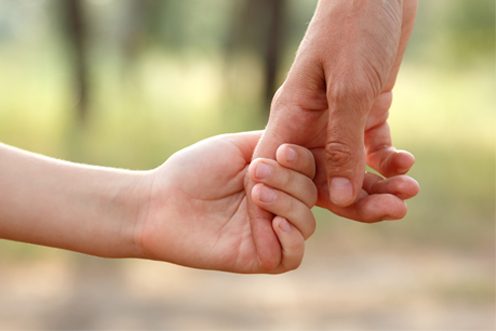Consent. It’s a word we’re hearing more often these days. It especially started gathering momentum shortly after the Jian Ghomeshi fiasco hit the news—a story involving alleged non-consensual sexual acts. Consent is a word that’s been a big part of my vocabulary for the last 25 years—thanks to my work counselling clients. Before I provide any therapeutic help, clients need to sign a consent to treatment form after reading the parameters of our relationship and what to expect. Most are not unfamiliar with this protocol. But with this word making headlines and coming to the fore, I was reminded again of how important consent really is, and how it fits in to our day-to-day family lives.
This got me thinking even further about the age at which we deem children capable of giving consent—not only from a legal perspective with professionals but even on an everyday basis with parents. I was especially thinking about the divorced parents who share with me that their child is not happy spending overnights with the other parent, only to be told, sorry, but the legal documents say you have to, and also reflecting on other words we use and the power we exert when insisting that our children do something that they’d rather not.
If you listen to conversations between parents and their children (yours and mine included), you will no doubt hear lots of examples of a parents imposing something against his or her child’s will. I get that there are daily activities that, given the choice, most kids would prefer not to engage in: brushing teeth, taking a shower, waking up early and going to school, to name a few. I also get that there are decisions that parents need to make and give consent for on behalf of their children that make them pretty unpopular, like ‘Yes, you do need to let the dentist take pictures of your teeth even though it is uncomfortable,’ for example.
However, I’m thinking that there are also times when we disregard our children’s wishes and impose our own on them, when we might not need to. ‘You need to wear gloves. I don’t care what you say. It’s cold outside‘, or ‘You will sit here and eat your vegetables even if you have to sit here all night,’ are examples of times when a parent may consider a different approach so that a child can feel more in charge of his or her own body. So, instead of insisting that gloves be worn, let your child’s hands be cold as a reminder for next time that gloves are better worn than left at home. Or, instead of insisting that your child eat everything on their plate and thereby teaching them not to listen to what their body is saying (‘I’ll gag if I eat those green beans’), let your child serve himself food from platters on the table. If he sees you eating green beans, I promise there will come a time when he will try one instead of being turned off beans for the rest of his life after being forced to eat them.
Even though these examples might seem trivial when compared to the kinds of acts that probably come to mind when we think of consent, the takeaway message here is this: if you show respect towards your children by acknowledging their desire to be in charge of their own bodies and that their tastes and needs differ from yours, then they too will not only learn to respect themselves but appreciate you more, too. In addition, if you talk with them about choices and allow them to stand up for what they believe in, then they will be better equipped to make good choices later in life.
The silver lining to all of this shocking news is that a somewhat taboo topic is now out in the open. Parents are springing into discussions with their sons about how to respect girls (and others of course) and to their daughters about how to trust their intuitive selves, how to say no and how to speak up until someone listens (even when they’re afraid to do so).
I urge you, as parents, to consider what you’re modelling in your own relationships. Remain true to your messages about consent by being conscious of how you’re molding your children into respectful and sensitive people by first being respectful and sensitive towards them.
Tagged under: kids,sex,consent,Jian Ghomeshi
Category: parenting






